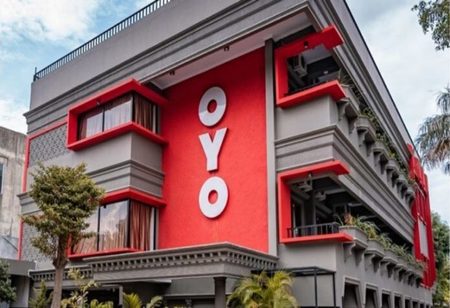
IPO-bound Oyo Rises Authorized Share Capital

 Oyo Hotels & Homes has augmented its authorised share capital from 1.17 crore to Rs 901 crore ahead of its initial public offering (IPO).
Oyo Hotels & Homes has augmented its authorised share capital from 1.17 crore to Rs 901 crore ahead of its initial public offering (IPO).
An extraordinary general meeting of Oravel Stays held on September 1 approved the resolution to upsurge its authorised share capital, according to a company’s filing with the Registrar of Companies (RoC). The increase is from the existing Rs.1, 17, 80,010 to Rs 9,01,13,59,300. Authorised capital is the maximum amount of capital that a company is allowed to issue at any point of time.
Oyo is likely to file its draft red herring prospectus (DRHP) with the capital markets regulator Securities and Exchange Board of India (SEBI) in the next few months, according to sources. The company eyes to raise $1.2-1.5 billion at a valuation of $14-16 billion.
The company has initiated talks with multiple bankers that include JPMorgan, Citi and Kotak Mahindra Capital to manage its public issue, they say. “Work has begun and some bankers have been finalised,” according to a person aware of the matter. “They are aiming to file the DRHP by September.”
In a precursor to the IPO, Oyo had in August from Microsoft Corp. by way of equity shares and compulsory convertible cumulative preference shares on a private placement basis. In July, it through the Term B loan route from global institutional investors, including Fidelity Investments, to refinance and simplify its existing borrowings.
Oyo is seeing a revival in business in markets such as India and Europe as the number of Covid-19 cases has been falling and vaccination rate improving. Last month, Oyo has that it was eyeing for stronger recovery in Europe on the back of higher vaccination rates and that India would also reflect the same once more people are vaccinated, at least once.
At present, 43percent of Oyo’s revenue comes from India and Southeast Asia while 28 percent comes from Europe and the rest from other global markets. The company was forced to cut down its operations in markets like the US and China amid the virus outbreak. In India, it fired a chunk of its workforce as Covid-19 hit its business hard.